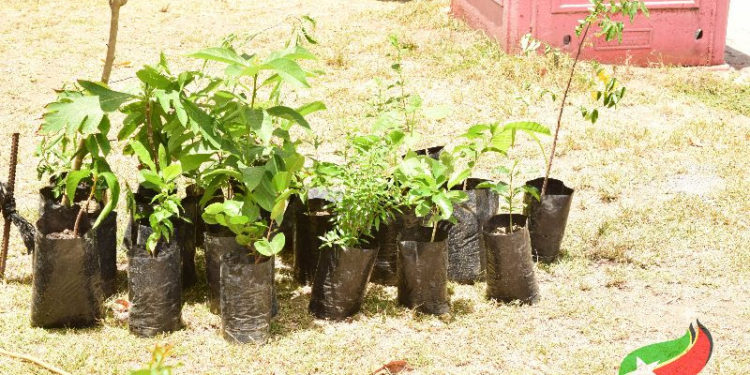Basseterre, St. Kitts, May 17, 2019 (SKNIS): Director of Agriculture, Melvin James, speaking at the launch of the 2019 National Best Village Competition, encouraged participants to not only focus on ornamentals and flowers during the beatification process, but use the opportunity to also plant items that can be consumed for the benefit, health and food security of the twin-island federation.
Mr. James stated at the launch that the competition comes at a time when the department is focusing on food security. The theme that the department has adopted is “Food Security for the Country-Food Security for All of Us.”
He encouraged participants not to spare any opportunity to zero in and to do something about the nation’s food security.
“As we prepare for our best village competition, and the plant care aspect of it, it is an excellent time to ponder equally on our food security,” he said. “I want to say to us that not only flowers and ornamental plants are beautiful, but indeed vegetables and fruit trees are equally if not surpassing in their beauty.”
The director stated that there is room for diversification when planning on what to plant for the competition.
“We have fruits and flowers in every shape, style and colour. As we beautify using our verges, roundabouts, community gardens, roadsides, some of these places are equally suitable not just for ornamental, but for food crops,” he said. “Some places where we plant large trees for shade, in place of the rubber tree or the ficus, there can be a coconut tree, a mango tree, or even some guavas.”
Mr. James stated that the planting of food is not new to the department as during the month of September, almost annually, it has been planting fruit trees along the sides of the main road.
“Persons should look for opportunities where they can plant fruit trees, where we can establish vegetable gardens, where we can grow roots and tubers because when we do that as a family then the children get an early introduction not only to the soil, not only to plant care, but to things that they can consume,” he said.
The director said that it gives persons, who may not be farmers, the opportunity to ensure their own food security.
“It means therefore that we are now helping to produce for ourselves and it has multiple effects,” he said. “It means that we can reduce our use of frozen fruits, we can reduce the use of high energy and dense, simple carbohydrate food. We can eat less of the heavily processed foods, which we import and thereby reducing our import bill, thereby also putting us in charge of our own diet and our own food security.”









